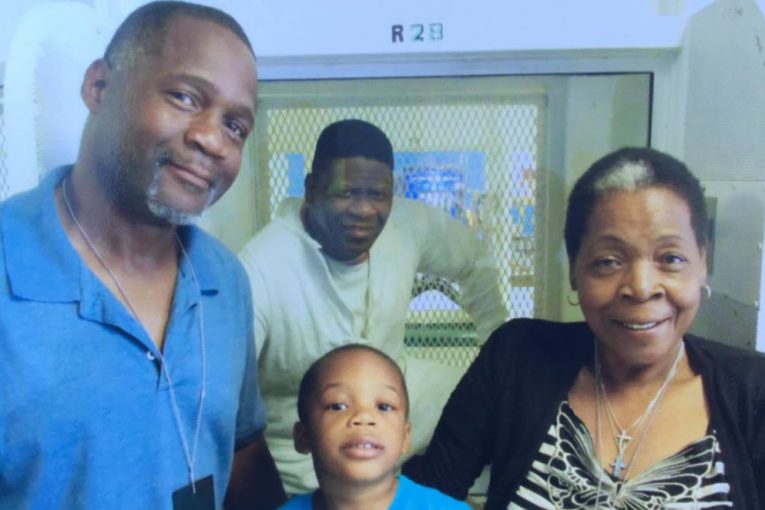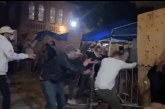

Special to the Vanguard
Washington, DC – The US Supreme Court ruled in favor of Rodney Reed on Wednesday, ruling that he filed his appeal to Texas’ postconviction DNA testing statute in timely manner.
The Court reversed the judgment of the Fifth Circuit Court of Appeals and remanded Reed’s 42 U.S.C. §1983 action for further proceedings on the merits.
Reed has argued that Texas’ DNA testing regime is unconstitutional and that key crime scene evidence in his case, including the belt used to strangle the victim, should be DNA-tested. That evidence has never been tested.
“The U.S. Supreme Court’s ruling today is a critical step toward the ultimate goal of getting DNA testing in Rodney Reed’s case,” said Parker Rider-Longmaid of Skadden, Arps, Slate, Meagher & Flom LLP, who argued the case on Mr. Reed’s behalf before the Court. “We are grateful that the Court has kept the courthouse doors open to Mr. Reed, a Black man who has spent 24 years on death row for the murder of a white woman with whom he was having an affair, a crime he has steadfastly maintained he did not commit.”
He continued, “As Mr. Reed’s briefs explain, extensive evidence developed in postconviction proceedings both points to Mr. Reed’s innocence and implicates the victim’s fiancé.”
Reed is seeking DNA testing of key crime scene evidence that has never been tested—including a belt handled by the actual perpetrator while strangling the victim.
Since 1989, 568 people have been exonerated because of DNA testing; 57 percent of them were African American.
Rider-Longmaid added, “The respondent in this case, Bastrop County District Attorney Bryan Goertz, has refused to allow DNA testing of the crime scene evidence. He should join us in the search for the truth, rather than blocking it. If DNA evidence exists, as it does here, it should be tested. It’s that simple.”
On November 15, 2019, the CCA stayed Reed’s execution to allow the courts to consider his Brady, false testimony, and actual innocence claims.
The Court remanded Reed’s case to the 21st Judicial District Court in Bastrop County for an evidentiary hearing, which was held in July 2021.
Despite the new, overwhelming evidence of innocence presented at the evidentiary hearing, Judge J.D. Langley adopted nearly verbatim or “rubber stamped” the State’s Proposed Findings of Fact and Conclusions of Law, including what his team calls “many obvious factual misrepresentations and misrepresentations of law. Judge Langley found every witness called by the State to be credible, and every witness called by Mr. Reed to be non-credible.”
They believe, “Because the judge abandoned his duty to be an unbiased, independent fact finder, Mr. Reed’s attorneys asked the CCA to reject the trial court’s copy-and-pasted findings on January 31, 2022.”
The CCA’s decision is pending.
On December 17, 2021, Reed’s attorneys filed another Request for Grant of Application for Writ of Habeas Corpus in the 21st Judicial District Court in Bastrop County and the Court of Criminal Appeals, which stated that prosecutors illegally hid yet more evidence for 24 years that could have exonerated Rodney Reed.
A month before the July 2021 evidentiary hearing, the State revealed, for the first time, that friends and co-workers of Stites told police, before Reed’s trial, that Reed and Stites knew each other and were romantically involved.
Despite having this critical evidence in its possession, the State allegedly “falsely told the jury that investigators looked high and low for evidence of a relationship and found none, and told the jury there was no evidence that Stites had ever associated with Reed.”
The State also allegedly “illegally suppressed statements from Stites’s neighbors about loud domestic violence arguments between Stites and Fennell, while arguing to the jury that their relationship was a peaceful and happy one and he had no motive to harm or history of harming Stites.”
Under the U.S. Supreme Court case Brady vs. Maryland (1963), the State had an affirmative duty to turn over all evidence that was favorable to Rodney Reed’s defense prior to his 1998 trial.
Instead, his team says, “the State hid the evidence pointing to Mr. Reed’s innocence for more than two decades. The State has filed no response. This application is awaiting decision at the CCA.”





